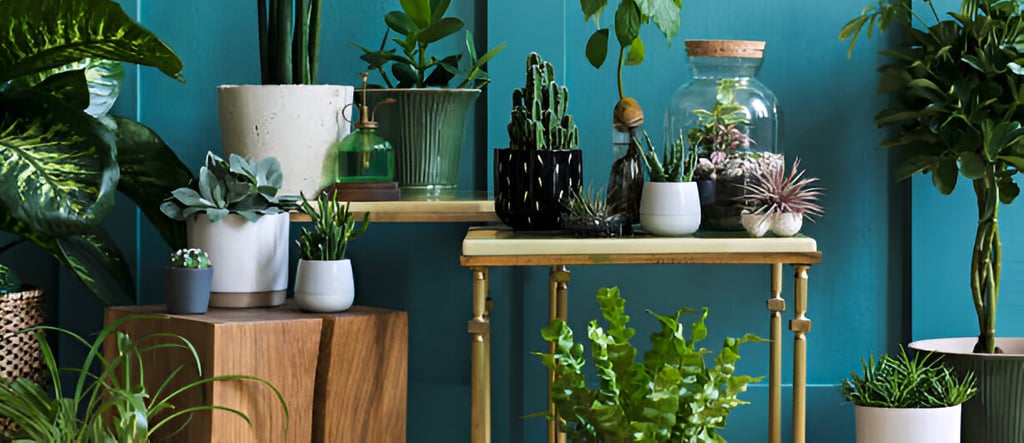When we think of protecting the environment, we often imagine sweeping changes: banning plastics, switching to solar, or planting forests. While these actions are important, lasting change often begins in small spaces—like your windowsill or backyard.
Home planting is one of the most accessible and powerful ways to care for the environment. With a few pots and a bit of soil, anyone can contribute to a greener, cleaner, and more balanced planet—right from home.
Why Home Planting Feels Magical
1. Purifies the Air You Breathe
Plants are natural air purifiers. They absorb carbon dioxide and release oxygen, improving indoor air quality. Certain houseplants like:
* Snake plant
* Peace lily
* Aloe vera
* Money plant
…are known to filter toxins like formaldehyde, xylene, and benzene—chemicals commonly found in household products.
2. Naturally Cools Your Home
Plants reduce ambient temperature by providing shade and releasing moisture. A well-placed balcony garden or wall creeper can lower indoor temperatures by several degrees.
Benefits include:
* Lower energy bills
* Reduced use of fans and ACs
* Cooler, more comfortable indoor spaces
3. Reduces Stress and Boosts Mental Health
Greenery is proven to reduce anxiety and improve mental focus. Tending to plants, watering them, or simply watching them grow gives you a sense of calm and purpose.
Benefits include:
* Lower stress levels
* Better concentration
* Boosted mood and positivity.
4. Supports Birds, Bees, and Butterflies
Home gardens, no matter how small, offer critical habitats for pollinators. Planting flowers like marigold, jasmine, or sunflower invites bees and butterflies to thrive.
Why this matters:
* Pollinators help crops and flowers reproduce
* More pollinators = more biodiversity
* Urban gardens provide essential food stops in concrete jungles
5. Gives You Fresh, Healthy Food
A home garden doesn’t need acres of land. Even in small containers, you can grow:
* Tomatoes
* Basil
* Mint
* Lemons
* Curry leaves
Homegrown food is free from harmful pesticides and packed with flavor and nutrients.
6. Reduces Waste Through Composting
Home planting often leads to composting—turning kitchen scraps into plant food. Composting is easy, odor-free, and incredibly beneficial.
Benefits:
* Reduces household waste
* Creates rich organic fertilizer
* Saves money on store-bought compost
Compo-stable items include:
* Fruit and veggie peels
* Coffee grounds
* Eggshells
* Tea bags
How Your Small Garden Helps the Planet
Even the smallest garden makes a big difference. Here’s how:
Reduces Your Carbon Footprint
Each plant absorbs CO₂ and contributes to climate change mitigation.
Teaches Children Values
Kids who grow up around plants learn:
* Patience
* Care
* Love for nature
* Responsibility
Builds Greener Communities
From rooftop farms to community garden projects, home planting encourages neighbors to connect and share resources. Creates Harmony with Nature. When you live with plants, you’re reminded that humans are part of nature, not separate from it. This encourages sustainable living in all areas—shopping, eating, and waste management.
Bonus Benefits of Home Planting
* Boosts Creativity: Green environments inspire artistic thinking
* Acts as Natural Humidifiers: Plants add moisture to dry indoor air
* Adds Beauty and Charm: Aesthetic improvement for your home décor
Start Small, Grow Big
Don’t wait for the perfect moment or the perfect space. Start with:
* 1–2 potted plants on a windowsill
* A vertical planter on your balcony
* Hanging herb baskets in your kitchen
* Recycled containers as DIY plant pots
One Seed Today, A Greener Future Tomorrow
If every household grew even a handful of plants, we could:
* Improve air quality in cities
* Reduce urban temperatures
* Create green corridors for wildlife
* Strengthen food security
* Build eco-conscious generations
You hold the power to make a difference—starting right at home. So pick up that pot, plant a seed, and water it daily—not just with water, but with hope, intention, and love.
Final Thought
> “He who plants a tree, plants a hope.” – Lucy Larcom
Let’s re-imagine our homes not just as living spaces, but as living ecosystems.
Start today. Your small step could be part of something much bigger.


